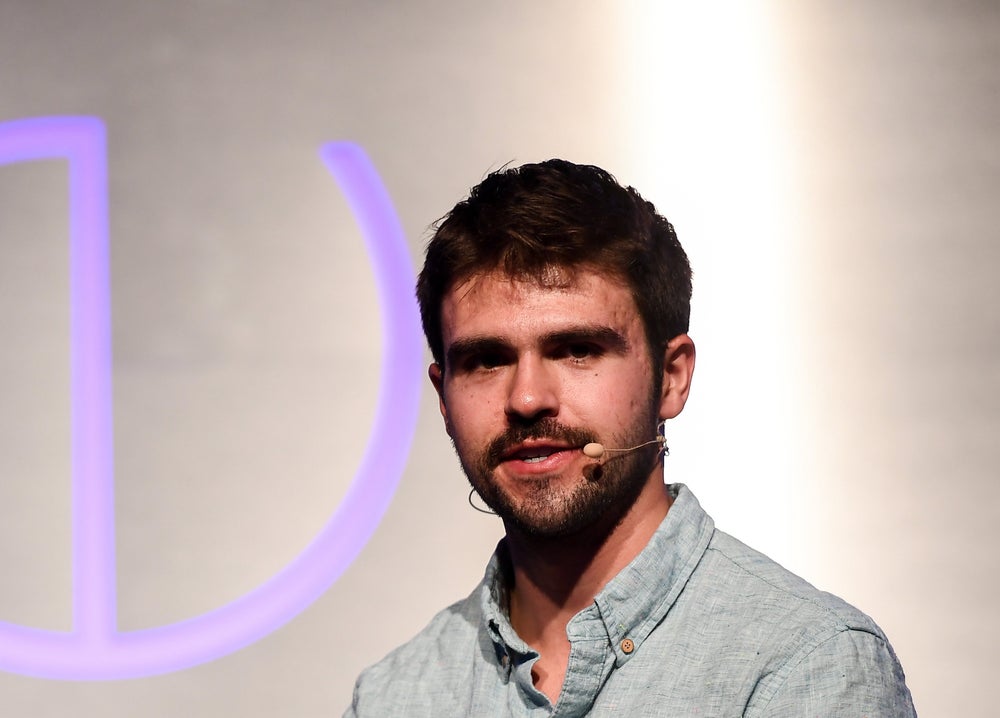When engineer and MIT graduate Calvin French-Owen joined OpenAI in Could 2024, the startup had round 1,000 staff. A yr later, OpenAI’s workforce had tripled to three,000 staff, and French-Owen was within the prime 30% by tenure.
In a weblog submit revealed Tuesday, French-Owen detailed what it was prefer to work for the ChatGPT-maker for slightly over a yr, from Could 2024 to June 2025. He give up OpenAI three weeks in the past, stating that there was no “private drama” behind his choice, however that he was merely “craving a recent begin.”
Associated: OpenAI Is Creating AI to Do ‘All of the Issues That Software program Engineers Hate to Do’
Whereas at OpenAI, French-Owen labored on Codex, a coding assistant launched in Could that competes with AI coding instruments like Cursor and Anthropic’s Claude Code. He described in his weblog submit that his staff of eight engineers, 4 researchers, two designers, two go-to-market managers, and one challenge supervisor created Codex in simply seven weeks. They labored most nights till 11 p.m. or midnight and got here into the workplace on weekends to finish the challenge.
“It is laborious to overstate how unbelievable this degree of tempo was,” French-Owen wrote. “I have never seen organizations massive or small go from an thought to a totally launched + freely out there product in such a brief window.”
He added later that Codex had reached 630,000 engineers in lower than two months since launch.
“I am undecided I’ve ever labored on one thing so impactful in my life,” French-Owen wrote.
 Calvin French-Owen. Picture By Harry Murphy/Sportsfile for Net Summit by way of Getty Photographs
Calvin French-Owen. Picture By Harry Murphy/Sportsfile for Net Summit by way of Getty Photographs
One “uncommon” side of OpenAI, which French-Owen emphasised in his weblog submit, was that “there is no such thing as a e mail,” and practically all communication occurs on the office messaging platform Slack. He estimated that he acquired about 10 emails in his total time on the firm.
Associated: OpenAI Executives Look For These 3 Key Traits in New Hires: ‘It is Really My Recommendation to College students’
French-Owen additionally acknowledged that there is a sturdy bias for motion at OpenAI, which means that employees are inspired to have good concepts and act on them. He characterised the startup as extraordinarily meritocratic, selling staff primarily based on their potential to have the very best concepts as a substitute of their potential to current at conferences or play political video games.
French-Owen discovered OpenAI to be “a really secretive place” in addition to “a extra critical place than you would possibly count on.” The startup prohibited him from telling anybody what he was engaged on intimately, and it felt as if the stakes had been excessive for the corporate to construct a product utilized by 500 million world weekly customers.
French-Owen additionally wrote that in relation to engineering personnel, there’s a “very vital” Meta to OpenAI pipeline. He identified that OpenAI is much like Meta in its early days, with a top-performing shopper app and “a want to maneuver actually shortly.”
Earlier than becoming a member of OpenAI, French-Owen was beforehand a co-founder of information startup Section, which Twilio purchased for $3.2 billion in 2020.
Associated: ‘I am going to Struggle to Preserve Each One in all You’: OpenAI Responds to Meta Poaching Expertise, Says It Is ‘Recalibrating’ Pay
Meta has been hiring expertise from OpenAI, too. Meta just lately poached prime OpenAI researchers, together with ChatGPT co-creator Shengjia Zhao and ChatGPT voice mode co-creator Shuchao Bi, with pay packages reportedly within the 9 figures. OpenAI Chief Analysis Officer Mark Chen indicated final month in a leaked Slack message that the corporate is rethinking compensation in response to the poaching.
OpenAI raised $40 billion in March at a valuation of $300 billion, the most important non-public tech deal ever recorded.
Be a part of prime CEOs, founders and operators on the Degree Up convention to unlock methods for scaling your small business, boosting income and constructing sustainable success.
When engineer and MIT graduate Calvin French-Owen joined OpenAI in Could 2024, the startup had round 1,000 staff. A yr later, OpenAI’s workforce had tripled to three,000 staff, and French-Owen was within the prime 30% by tenure.
In a weblog submit revealed Tuesday, French-Owen detailed what it was prefer to work for the ChatGPT-maker for slightly over a yr, from Could 2024 to June 2025. He give up OpenAI three weeks in the past, stating that there was no “private drama” behind his choice, however that he was merely “craving a recent begin.”
Associated: OpenAI Is Creating AI to Do ‘All of the Issues That Software program Engineers Hate to Do’
The remainder of this text is locked.
Be a part of Entrepreneur+ immediately for entry.





